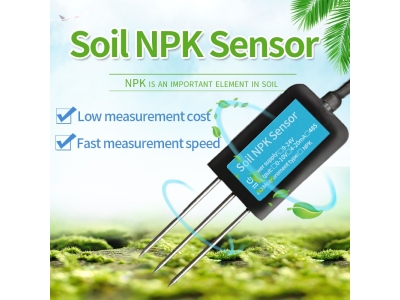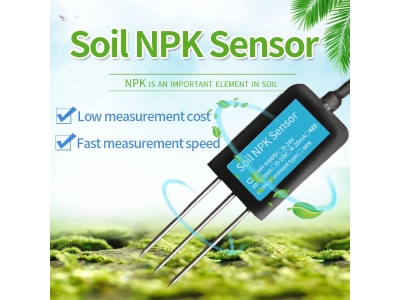Precision farming, also known as precision agriculture, has revolutionized the way we cultivate crops and manage agricultural practices. One key technological advancement that has greatly contributed to this field is the development and utilization of soil sensors. These underground intelligence devices have transformed traditional farming methods by providing real-time data on soil conditions, enabling farmers to make informed decisions and optimize their farming practices. In this article, we will explore the power of soil sensors in precision farming and the numerous benefits they offer.
Enhanced Soil Monitoring
Soil sensors play a crucial role in monitoring soil health and conditions. These sensors are designed to measure various parameters such as soil moisture, temperature, pH levels, and nutrient content. By providing accurate and continuous data, farmers gain valuable insights into the overall health and fertility of their soil. This allows for targeted and efficient use of water resources, fertilizers, and other inputs, minimizing waste and maximizing crop yields.
Precise Irrigation Management
Proper irrigation is essential for crop growth and productivity. Soil sensors enable farmers to monitor soil moisture levels in real-time. This data helps farmers determine the optimal timing and amount of irrigation required, preventing both under- and over-watering. By ensuring that plants receive the right amount of water at the right time, farmers can promote healthy root development, reduce water consumption, and avoid waterlogging or drought stress.

Nutrient Optimization
Understanding nutrient levels in the soil is crucial for plant growth and development. Soil sensors provide farmers with insights into the availability of essential nutrients such as nitrogen, phosphorus, and potassium. This information helps farmers adjust their fertilizer application rates and timings, ensuring that crops receive the necessary nutrients for optimal growth. By optimizing nutrient management, farmers can minimize environmental pollution and reduce the cost of unnecessary fertilization.
Disease and Pest Management
Soil sensors can also aid in disease and pest management. Certain sensors are capable of detecting soil-borne pathogens or pests present in the soil. By identifying these threats early on, farmers can take preventive measures, such as adjusting crop rotation plans or applying targeted treatments, preventing the spread of diseases and minimizing crop losses. This proactive approach to disease and pest management is not only economically beneficial but also environmentally sustainable.
Data-Driven Decision Making
The power of soil sensors lies in their ability to provide real-time, accurate data. This data can be integrated with other farm management systems and analyzed to generate valuable insights. Farmers can utilize this information to make informed decisions regarding crop selection, planting density, and even marketing strategies. With access to precise and up-to-date information, farmers can optimize productivity, reduce costs, and increase overall profitability.
Conclusion
The integration of soil sensors into precision farming practices has had a profound impact on agricultural productivity and sustainability. These underground intelligence devices offer farmers valuable information about soil conditions, enabling them to make data-driven decisions and optimize their farming practices. From enhanced soil monitoring to precise irrigation management, nutrient optimization, and disease prevention, soil sensors are transforming agriculture. As technology continues to advance, we can expect even more sophisticated sensors that will further empower farmers and pave the way for a more efficient and sustainable agricultural future.






